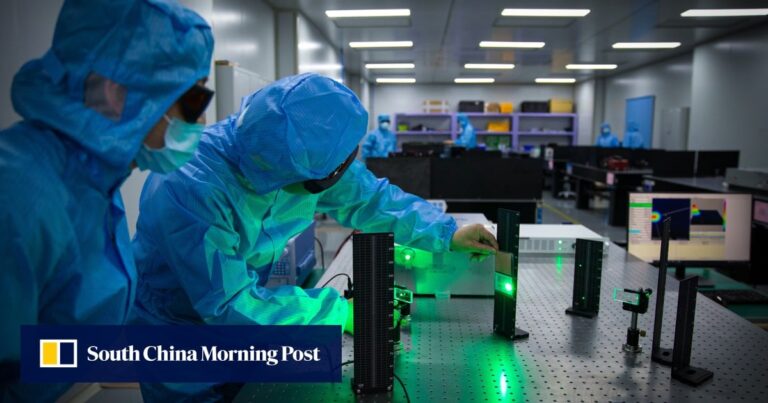“Education, science and technology and talents serve as the fundamental and strategic foundations for China’s modernization,” the statement said.
The announcement comes as the United States and its allies increase pressure on China to limit its growth in science and technology. But China faces many major challenges at home, and party leaders appeared to acknowledge these issues by making the statement inward-looking.
Recognizing these challenges, the Central Committee also recognized the need to focus on “reform” in science and technology to develop the nation and meet the expectations of its people.
“In order to better cope with the complex domestic and international situations, adapt to the new scientific and technological revolution and industrial transformation, and meet the new expectations of the people, we must intentionally focus on reform and further deepen it in a comprehensive manner with a view to promoting China’s modernization,” the committee said in a statement.
“We must fully implement our strategy of invigorating China through science and education, our strategy of cultivating a high-quality workforce, and our strategy of innovation-driven development.”
Developing this pool of expertise may require an overhaul of science and technology institutions and mechanisms to pursue “significant technological breakthroughs.”
President Xi Jinping has repeatedly stressed the role of science and technology in building a “modern socialist country in all respects.”
“We must regard science and technology as the main productive forces, talent as the main resource and innovation as the main driver of growth,” he said, speaking at the party’s 2022 national conference.
“We will continue to prioritize the development of education, strengthen China’s self-reliance and scientific and technological capabilities, and rely on talent to pioneer and drive development. We will speed up work to build a strong education system, stronger scientific and technological capabilities, and a high-quality workforce.”
Ma Liang, a professor of public policy at Renmin University of China in Beijing, said that for a country to become more innovative, it needs education, science and technology and talent.
He said the “only way” to overcome the serious challenges facing China’s science and technology sector was to push forward and deepen institutional reform across the three areas.
Ma said that until now, transformation of China’s science and technology system has not occurred in tandem with changes in education and the development of expertise.
It meant that the talent pool, including top experts and engineers, needed to deliver innovation was not being properly supported and incentivized.
He said there was a “huge gap” between the talent produced by the current education system and the talent needed to drive innovation.
For example, there are not enough people with the know-how to turn scientific and technological discoveries into real products, and there remains a shortage of educated people willing to devote themselves to such innovations, especially in basic research, he said.
Huang Lu, a professor at Beijing Institute of Technology, said insufficient institutional integration and evaluation were also obstacles to developing a more skilled workforce.
Huang told state-run Guangming Daily in June that there were “structural contradictions” that prevented top talent from being developed.
“The integration of education, science and industry is superficial and disciplinary fragmentation is unable to meet the demand for innovative interdisciplinary talent. Moreover, the mobility of scientists between universities, research institutes and companies is limited,” she said.
Huang said that to meet the needs of the industry, departments in different fields need to work together, improve talent assessment methods and create a supportive environment with incentives.
Over the years, science and technology have played an increasingly large role in the Central Committee’s plenary sessions and decisions.
The focus in 2013 was on the environment, including awareness and protection of natural resources. The same year, a national air quality action plan was adopted in response to extreme smog across the country.
In 2020, China responded to US-led restrictions and sanctions by aiming for scientific self-reliance and challenging the “frontier of global science and technology.”
The Central Committee also mentioned scientific education and development, but its strategy was more about self-reliance and a global perspective than reform.
These themes are likely to form part of the committee’s full decision, which has yet to be made public.



